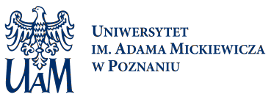Project’s support
Regulations for the processing of research applications by the Polish Institute of Archaeology in Athens (PAIA)
1. Individuals applying through PAIA must be members of PAIA.
2. PAIA maintains contacts/correspondence with the institutions of the Hellenic State, especially the Ministry of Culture, and prepares formal applications. Substantive preparation of the application is the responsibility of the Project Manager. PAIA also does not translate substantive documents into Greek. Translating such documents requires special competences. PAIA can facilitate the contact between the project manager and translators with appropriate competences. For all substantive documents translated into Greek, please provide the name of the translator. He must be a an archaeologist who knows specialized archaeological vocabulary. We also emphasize that procedures related to archaeological records in the Greek State have a complicated, multi-stage course, so they are always time - consuming.
3. The most frequently occurring categories of scientific activities that require PAIA mediation/assistance are the following:
3.1, PAIA excavation project - independent or in cooperation with the Greek side (synergasia),
3.2, PAIA non-invasive field research project - independent or in cooperation with the Greek side (synergasia),
3.3, study of published material from museum/ephorate storerooms,
3.4, studies of unpublished material from museum/ephorate storerooms with publication rights,
3.5. application for specialized analyzes of materials from museum/ephorate storerooms using both non-destructive and destructive methods,
3.6. application for the use of photographs of objects from museum/ephorate collections in print, on the Internet and in electronic publications.
4. In the case of applications related to field research (see points 3.1 and 3.2), the final date for accepting applications is set the last day of September. This is due to the fact that that applications will first be formally checked, and consent for their processing by PAIA must be issued by the PAIA Scientific Council. Only after fulfilling these conditions can the application be sent to the appropriate institutions of the Hellenic State (deadline specified by the Ministry of Culture of the Greek Republic: end of November).
5. In the case of other applications (see items 3.3 to 3.6), applications will be completed successively throughout the year. The duration of their implementation will depend on the order of notifications and the number of cases handled at the same time. Interested parties will be informed about the approximate duration of the procedures for each performed task.
6. In the case of applications 3.3 - 3.6, we emphasize that Greek institutions related to the protection of the archaeological heritage require very precise lists of objects/ samples to be studied/analyzed. Therefore, it is recommended to collect, based on literature or information from the director of excavations/director of the institution, catalog numbers of monuments/samples (preferably a visit to this institution), in order to collect the necessary substantive information that will be the main part of the application. All applications require the consent of the director of excavations, or the director of the foreign school or Greek institution under which the field research was carried out.
7. PAIA's cooperation with the Project Manager is based on the following principles:
7.1, The person/institution submitting the application is obliged to fully prepare the application in terms of content, also in the Greek language version; PAIA is not responsible for the substantive content of the application, nor does it have any competence in the specialist Greek nomenclature relating to any issues of the archeology of this country,
7.2, PAIA reserves the right to check the language of the application,
7.3, PAIA provides information on the form of the application/documentation (what parts it should consist of) , provides templates of official questionnaires ( if any are in use in a given case), informs about deadlines and prepares cover letters,
7.4, PAIA conducts official correspondence with Greek offices/institutions ,
7.5, PAIA may assist in establishing contacts with persons/ institutions (museums, ephorates ) in Greece,
7.6, PAIA may prepare templates of the most frequently used documents.
8. The Regulations enter into force on the day of adoption by the PAIA Council of Partners .
Attachment 1.
| Project budget (PLN million ) | For a PAIA Collective Member (PLN) for one year | For Managers from an institution that is not a PAIA Collective Member (PLN) for one year |
| Over 2 million | 5000 (1125 euros) | 10,000 (2,250 euros) |
| Over 1.5 to 2 million | 4000 (900 euros) | 8,000 (1,800 euros) |
| Over 1 to 1.5 million | 3000 (675 euros) | 6,000 (1,350 euros) |
| Over 0.5 to 1 million | 2000 (450 euros) | 4,000 (900 euros) |
| Up to 0.5 million | 1000 (225 euros) | 2000 (450 euros) |
If the implementation of the project in a given year is not financed based on a grant dedicated to a given project, the annual fee is determined by the Director of PAIA in consultation with the Project Manager.
The costs of running a project implemented by an institution outside the 2018 Agreement will be determined individually by the Director, but they must be at least twice as high as for the members of the 2018 Agreement.
See Annex 2
Rates (PLN) for Members of the Polish Archaeological Institute to use assistance in handling non-field research projects (points 3.3 - 3.6)
For each permit:
for a member of an institution from the 2018 Agreement:
PLN 250
for a member from an institution outside the 2018 Agreement:
PLN 500
